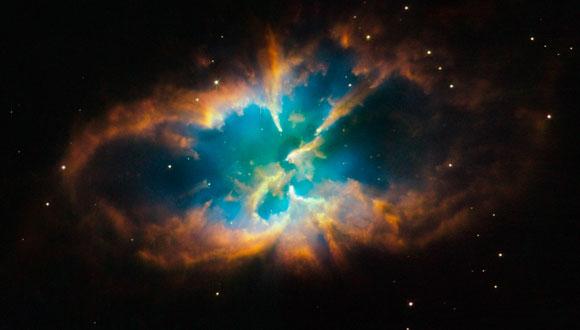Graduate Studies
The list below includes most of the graduate courses for students specializing in Astrophysics. Some of the courses are given every other year. Detailed prior requirements, syllabi and timetables can be found in the list of courses published yearly by the Faculty of Exact Sciences in the Course Catalog (Yedion). Each graduate student's program of studies must be approved by the graduate student advisor.
Astrophysics Graduate Courses:
Star Formation
Basic astronomical techniques in the infra-red and radio, relevant for observations of molecular clouds. The formation and physics of molecular clouds and their role in star formation. The processes and physics of star formation.
Binary Stars and Compact Objects
Binary Stars - methods of discovery and observation, abundance and characteristics of double dtars, white dwarfs - observations of white dwarfs, white dwarfs in double systems - cataclysmic variables, neutron stars - nuclear matter, pulsars, neutron stars in double systems, X-ray pulsars, black holes.
Quasars and Active Galaxies
Basic observations: types of Active Galaxies, Liners, Seyferts, Quasars, BL Lac objects. Physical processes in nuclei: black holes, accretion disks, jets, radiation and energy production processes. Active Galaxy spectra: narrow and broad lines, ionisation processes in hot gas, dynamics and kinematics of gas clouds, line and continuum variations, mass measurements. Cosmological evolution, contributions to the cosmic background, galaxy formation. Morphology of Active Galaxies.
Cosmology
Introduction to cosmology and general relativity, cosmological principles, the Robertson-Walker metric, cosmological solutions of the field equations, the Standard Model, observational determination of the basic cosmological parameters, the cosmic microwave background radiation, nucleosynthesis of the light elements, evolution of the universe at different epochs, growth of large scale structure, the early universe and inflationary models.
Stellar Astrophysics
The basic equations of stellar structure, state equations, energy transfer in stars: radiative, convection, conduction. Stellar stability, dynamic and secular stability, oscillations, stellar evolution: the main sequence, red giants and white dwarfs. Time dependent phenomena in Stellar Structure.
Observational Techniques
Geometrical and wave optics; Telescopes; celestial coordinates; CCDs ; array data reduction; photometry; sensitivity and noise sources, spectroscopy, spectral observation and data reduction; IR arrays; polarimetry; neutrino, cosmic-ray and gravitational-wave astronomy; adaptive optics; interferometry; ultraviolet observations, X-ray and gamma-ray observations, radio, sub-mm, telescopes and detectors.
Nuclear Astrophysics - Nuclear Processes
Nuclear processes in different astronomical objects, stars, novae, super-novae. Interaction of cosmic rays with interstellar matter, creation of the elements in the universe, enrichment of the interstellar matter with heavy elements, gamma-emitting processes in the sun and the galaxy, gamma-ray sources.
Radiation Processes and the Interstellar Medium
Processes of heating and cooling in ionized and molecular gas. Molecules and interstellar dust. Emission spectrum of gaseous nebulae, radio emission in the continuum and in recombination lines.
High Energy Astrophysics
Special relativistic effects, Radiation processes (free-free, synchrotron, inverse Compton, pair creation-annihilation), Relativistic hydrodynamics (flow equations, relativistic winds and jets, shock waves), particle acceleration (cosmic rays, Fermi process, injection problem).
Applications to astrophysical phenomena will be incorporated along the entire course (Supernovae, Gamma-ray Bursts, Blazars, Pulsars, Galaxy clusters, etc.)


